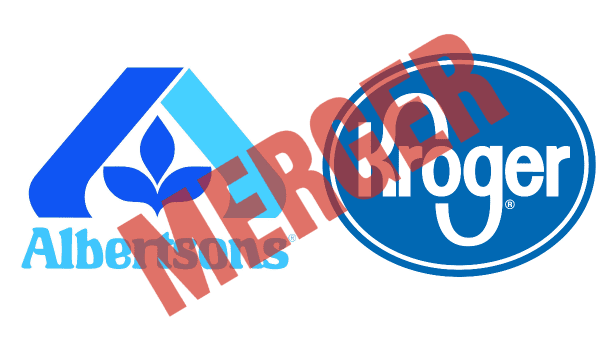The proposed merger of the Kroger and Albertsons retail grocery chains is the subject of a recent white paper issued by the International Center for Law and Economics in Portland, OR.
The paper argues on behalf of the merger and against Federal Trade Commission (FTC) policies that would block it.

“Attempting to block this transaction would go against the analytical framework the FTC has historically used to evaluate similar transactions, as well as the agency’s historical precedent of accepting divestures as a remedy to address localized problems where they arise,” says the paper.
“The FTC has a long history of assessing retail mergers in a manner significantly at odds with the aggressive approach it is currently signaling,” the paper continues. This appears to be the case, as I’ve discussed in previous articles. More doubts about the Kroger-Albertsons merger – Produce Blue Book
From the 1980s to the present, mergers have generally been assessed on the basis of whether they would cause harm to consumers rather than on the basis of eliminating competition (the ostensible purpose of antitrust law).
The current FTC, headed by Lina Khan, is going back to practices before the Reagan administration, which focused on competition per se.
Merger supporters, including the authors of this paper, advocate returning to the status quo of the past 40 years in antitrust practice. They argue that food retailing has become so diverse that (using appropriate divestitures), the merger would not be anticompetitive—for consumers, at any rate.
Here are the arguments most relevant to the produce industry:
“Some critics of the merger have speculated that the merged company would be able to exercise monopsony power against its food and grocery suppliers (i.e., wholesalers and small manufacturers), often invoking an economic concept called the ‘waterbed effect.’ The intuition is that the largest buyers may use their monopsony power to negotiate lower input prices from suppliers, leading the suppliers to make up the lost revenue by raising prices for their smaller, weaker buyers.
“But these arguments are far from compelling. It is very difficult, for example, to hypothesize any relevant market for purchasing a good where the merged firm would have market power. Critics also often fail to consider the ability of many producers—both small and large—to sell directly to consumers, as demonstrated by the rise of online shopping, with its low entry barriers entry and low-cost structure.”
I suspect that many people in the produce industry would be able not only to “hypothesize any relevant market” but to point to concrete examples in their own businesses.
The paper would have been more convincing had it attempted to more directly refute the contentions of many unions, consumers’ groups, antitrust experts, and state district attorneys to this merger. (Visit Stop the Merger (nogrocerymerger.com) for a colorful display of the opponents’ logos.)
Opponents include Western Growers, the California Fresh Fruit Association, and the Colorado Fruit & Vegetable Growers Association.
Think tank papers look so objective and even-handed when they are nothing of the kind. This one repeats some of the arguments of Scott Moses, an attorney participating in the merger, almost verbatim. Kroger-Albertsons ping-pong – Produce Blue Book So we know whose side it is on.
In this debate, it is not a matter of being probusiness or antibusiness. It is about how big the businesses are that you are pro.



